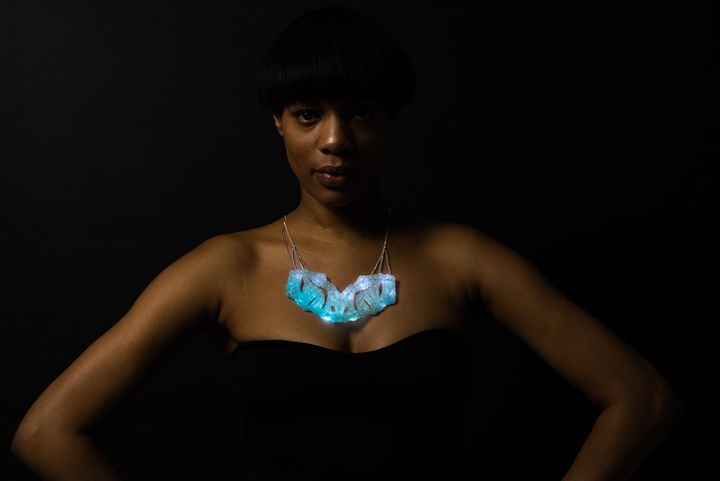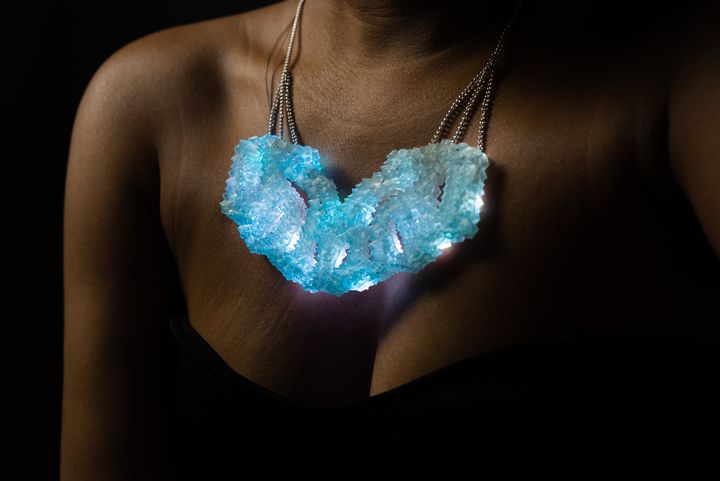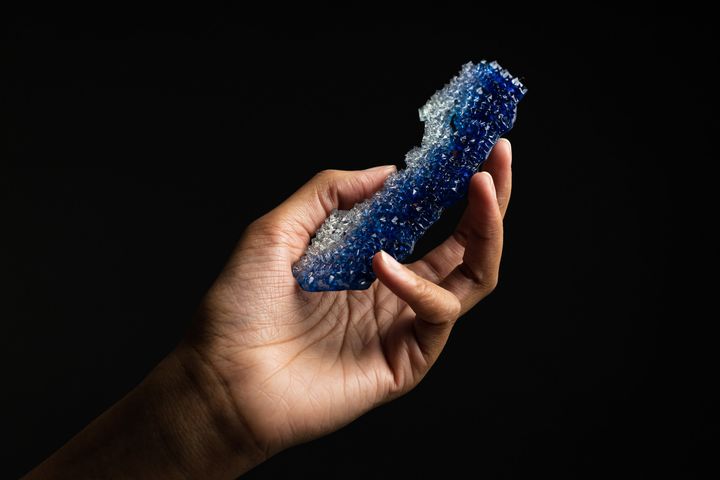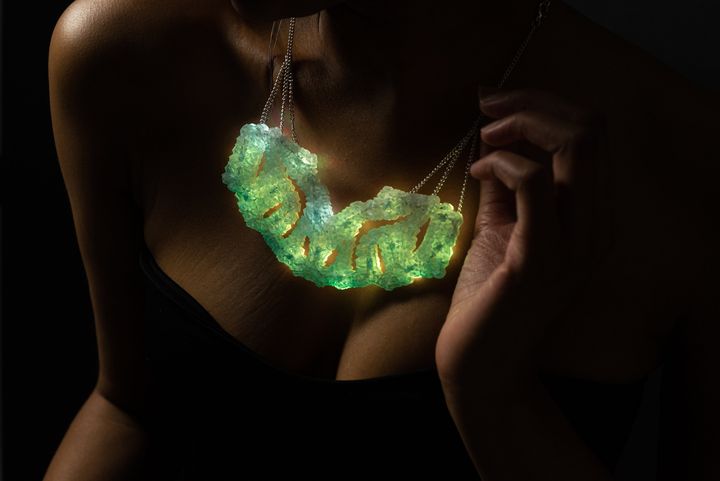
Satori described an innovation collaboration with designer Ganit Goldstein.
Goldstein has appeared in Fabbaloo previously. In late 2020 she had been working with Stratasys to develop highly unusual 3D printed fabrics using new full-color 3D printing technologies. While that appeared to be successful, she is now producing jewelry with the assistance of Satori.
Satori is a new 3D printer startup that emerged only several months ago. They develop a competent resin-style 3D printer, the ST1600, but that’s not really the core of their business. Instead they are focusing on the process of innovation with clients, and using their 3D printers along the way to help produce parts necessary for each project.
It’s a very strong strategy, as it addresses one of the key barriers to adoption of 3D print technology: skills and knowledge. Those outside of the 3D print space often have little idea of what is possible, how things can be made or what materials to use. This is particularly evident with artists, who are frequently non-technical and thus balk at attempting to use 3D print technology on their own.
Imagine one of those artists buying an inexpensive resin 3D printer from one of any number of suppliers, and then trying to figure out EVERYTHING on their own. It’s no wonder we don’t see very many artists using 3D printers.
And that also shows the power of Satori’s strategy: they will partner with an artist (or anyone with an innovative project) and assist them through the technical hurdles to arrive at a successful project conclusion.

The most recent collaboration with Goldstein has concluded with the development of an amazing jewelry item.
The design of this 3D printed necklace is quite detailed, and easily produced on the ST1600, apparently in only 25 minutes and without requiring any support structures.

Satori’s engineers determined the best way to produce the item, and even helped install the controllable LED lights that are embedded in the necklace. Watch this video to see how it appears and can change while worn:
The necklace can be controlled via an app, which allows the wearer to express themselves via colors, either to match person and outfit, or mood. Either way, it’s a great design.

I’m wondering if successful projects like this collaboration will attract the attention of other designers previously fearful of attempting to use 3D printing technology. If so, we may see many more unusual items in the near future.
Via Satori
